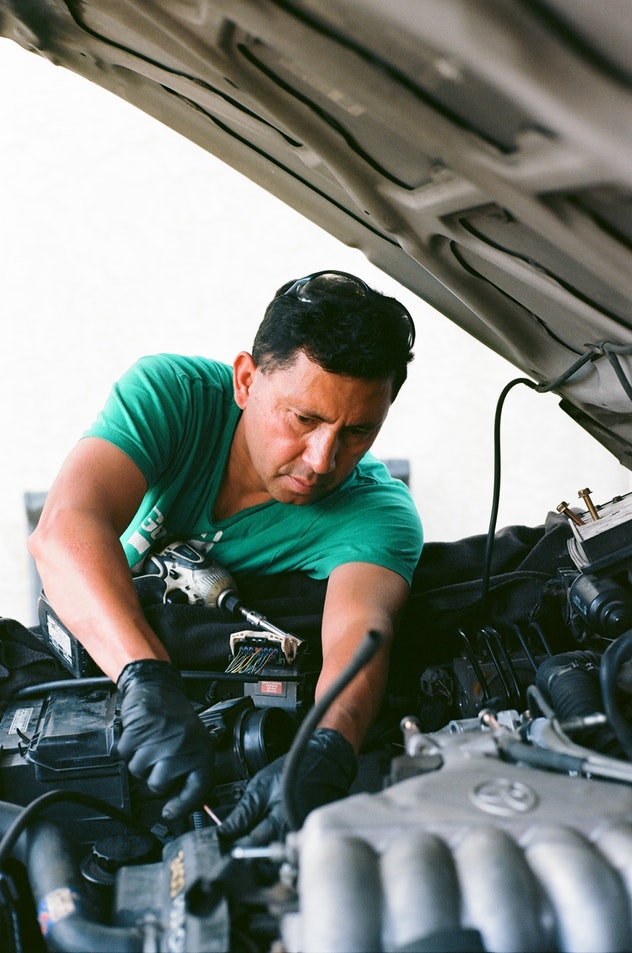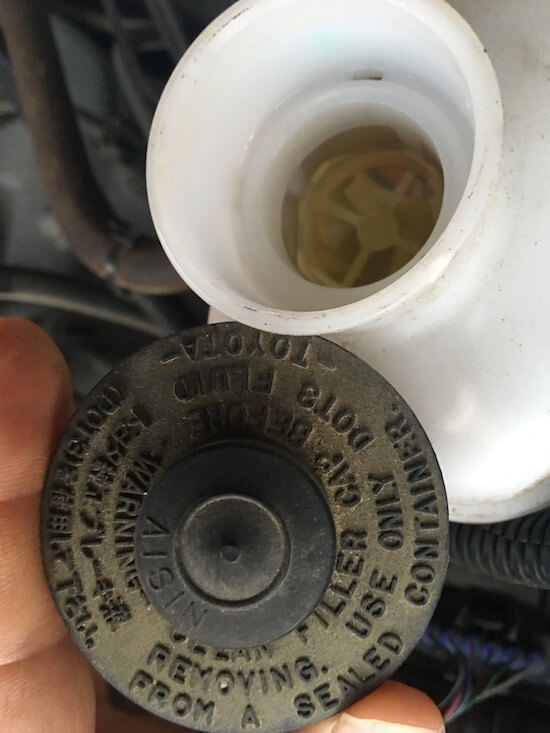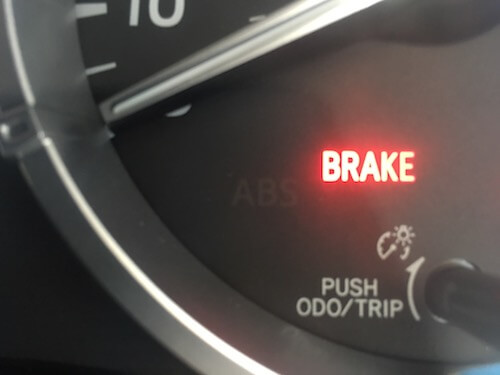Posted on 10/19/2018
A brake pedal should feel firm and tight to quickly stop a moving vehicle. A pedal that lacks a distinct firmness may have problems stopping the car, threatening the safety of the driver and passengers. Drivers experiencing sponginess in their brake pedals should visit a mechanic. Air in the Brake Line Brakes operate by evenly distributing fluid through a hydraulic pressure system to reduce speed. Brake fluid is the only thing that should be in the brake lines. If air seeps into the lines, it can prevent the flow of brake fluid, reducing pressure and increasing the vehicle’s stopping time and distance. The driver will experience a soft brake pedal and notice difficulty when stopping. Bad Disc Brake Calipers To decrease speed, disc brake calipers clamp the brake pads down on the rotors. This produces significant amount of heat, causing caliper corrosion over time. This corrosion causes internal pistons to leak brake fluid, resulting again in a spongy brake pedal. Bad Brake Fl ... read more
Posted on 10/17/2018
Gas is expensive, and filling up with premium gas in San Carlos can cost well over four dollars per gallon. Fortunately, regular unleaded gas works well in most vehicles. However, if an automaker requires premium gas, failing to use it can cause serious engine damage. Here’s why it’s critical to follow the manufacturer’s fuel guidelines. Understanding the Octane Difference The key difference between regular and premium fuels is the octane rating. When gas and air ignite before they should, an explosion called a pre-ignition occurs, causing a knocking sound in the engine. Fuel is given an octane rating based on how well it resists pre-ignition. Premium gas, typically rated at 90 or above, is less prone to pre-ignition and contains additives that help engines run cleanly. Required vs. Recommend Fuel Some owner’s manuals “require” premium fuel, while others “recommend” it. Though this may seem like a semantic difference, some vehicles re ... read more
Posted on 10/15/2018

Pops, hisses, and sizzles are great when cooking steak but not when they’re coming from the engine of a vehicle. Unusual noises coming from the hood, brakes, or underside of a car can be indicative of serious problems. Drivers who hear strange sounds should take their car to a mechanic for maintenance as soon as possible. Alarming Noises Under the Hood A loud, squealing noise coming from under the hood is likely caused by a loose or worn serpentine belt, which powers the car’s major systems. Once the belt snaps, drivers are left with a vehicle that won’t move. If a car makes hissing or sizzling noises after the engine is turned off, the most likely issues are coolant or oil leaks, an overheated engine, or leaking vacuum lines. Knocking or tapping noises can be caused by a number of issues, including ignition problems, clogged fuel filters, or damaged or dirty spark plugs. Even using fuel that’s a lower grade than the owner’s manual specifies can ca ... read more
Posted on 10/14/2018
Why Are My Brakes Squeaky? Typically, before you need new brakes, the brakes will wear down, touch the brake warning indicator sensor, and cause a squeaky noise when you apply the brakes. This squeaky brake noise can also be caused the worn brake pads, damaged brake rotors, worn brake shoes, worn brake hardware, or simply a lack of lubrication on brake contact points. What is the squeaky noise when I reverse? A squeaking noise that we commonly hear from our client’s vehicles at A+ Japanese Auto Repair Inc. is from a brake pad component called the brake warning indicator or brake wear tab. The picture to the right shows the tab of metal called the wear indicator. This tab will touch the rotor when the pad is very low and will typically sound like a squeaking or whining noise as it vibrates over the brake rotor. Only quality brake pad manufacturers install pads with wear indicators. The wear indicator is a tab of sheet metal that gives a driv ... read more
Posted on 10/11/2018

A brake flush is a service in which the brake fluid is flushed from the brake master cylinder, through the brake line, hoses, calipers, and then the fluid is expelled out through the brake bleeder screws. During the brake flush, the dirty brake fluid that is getting flushed is replaced by new brake fluid. How often should I flush my brake fluid? Vehicle manufactures recommend to flush brake fluid every 2-3 years or every 24,000 - 36,000 miles. A brake fluid flush is recommended often because the brake fluid is hygroscopic, which means, it will absorbs moisture from the air. The more moisture that the brake fluid absorbs, the less effective the brake fluid will be in dealing with heat and protecting the brake components. How much does a brake fluid flush cost? Brake fluid flush cost will range from $95 - $225 based on the type of fluid and the type of vehicle. Normal passenger cars will cost less because they typically use DOT3 brake fluid while ... read more
Posted on 10/7/2018
How Do I Know If I Need New Brakes? We put together a list of brake symptoms to help you know if you need new brakes. The brake warning light stays on the dash while driving. Squealing is heard from the brakes while reversing the vehicle. The steering wheel shakes while applying the brake pedal. You can hear grinding or squealing when applying the brake pedal. The emergency brake no longer holds the vehicle when the brake is applied. The brake pedal feels soft, spongy, or slow to respond. The brake pedal does not engage the brakes at it’s normal height. The stopping distance increased beyond the usual stopping distance. Vehicle pulls to one side when applying the brakes. If any of these braking symptoms are present, you could need new brakes. We always recommend to have your brake system inspected by a professional to determine if you need new front brakes, new rear brakes, new brake master cylinder, new brake hose, l ... read more
Posted on 10/4/2018

What does the brake warning light mean? A brake warning light on the dash means that you either have an issue with the brake system or your emergency parking brake is on. What can cause the brake warning light to come on? In normal operation, the brake warning light will come on when you start the car, then the light will turn off immediately after you release the emergency parking brake. If the brake warning light comes on the dash for any other reason, that means your vehicle has an issue with your brake system. The brake warning light should come on under the following conditions: The brake warning light will come on upon start up of your vehicle to indicate that the brake warning light bulb is working properly. The brake warning light will stay on if the parking brake is applied. The brake warning light will come on if there is a problem within the braking system. The brake light will also come on in conjunction with the ba ... read more